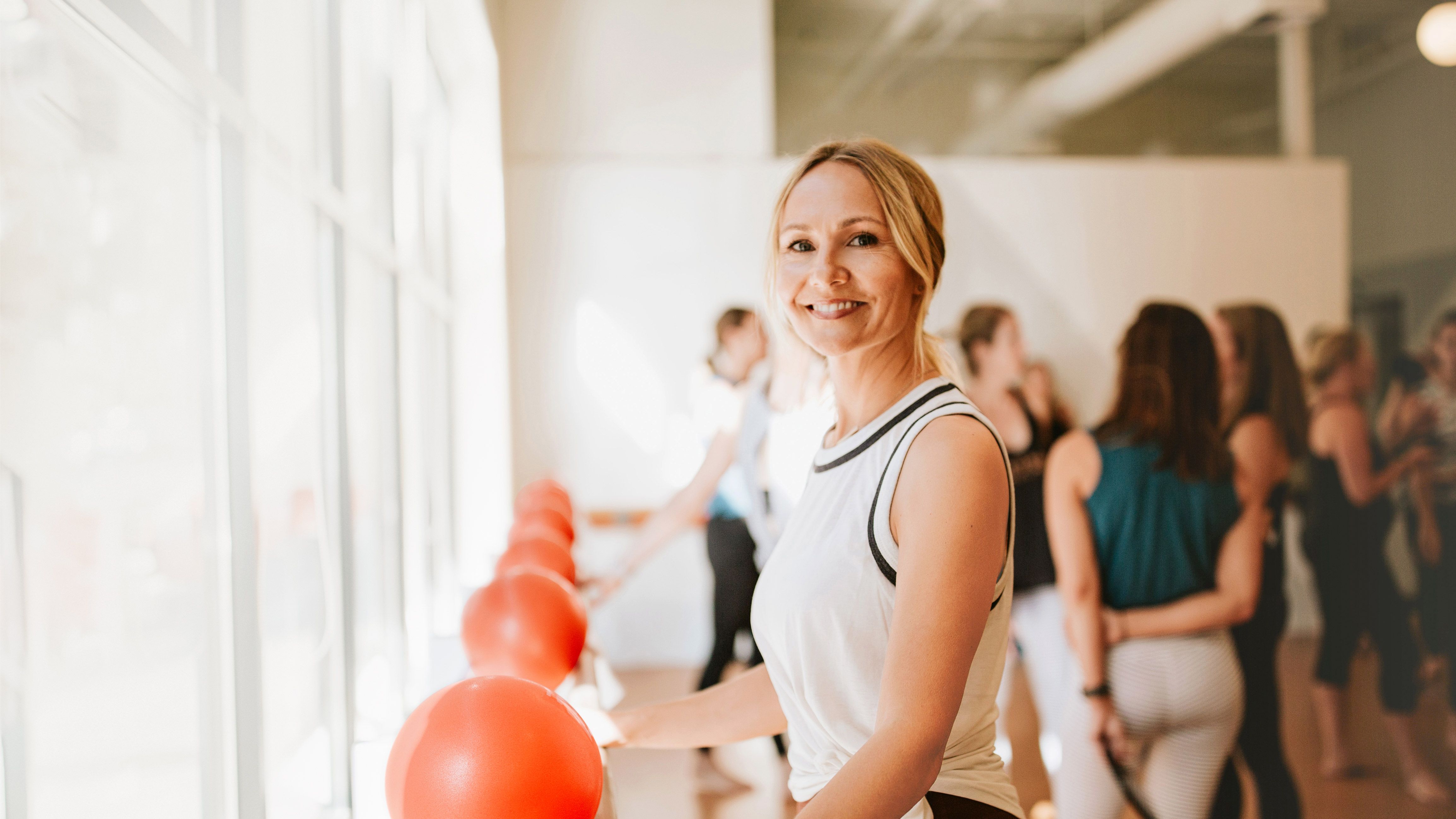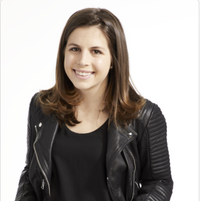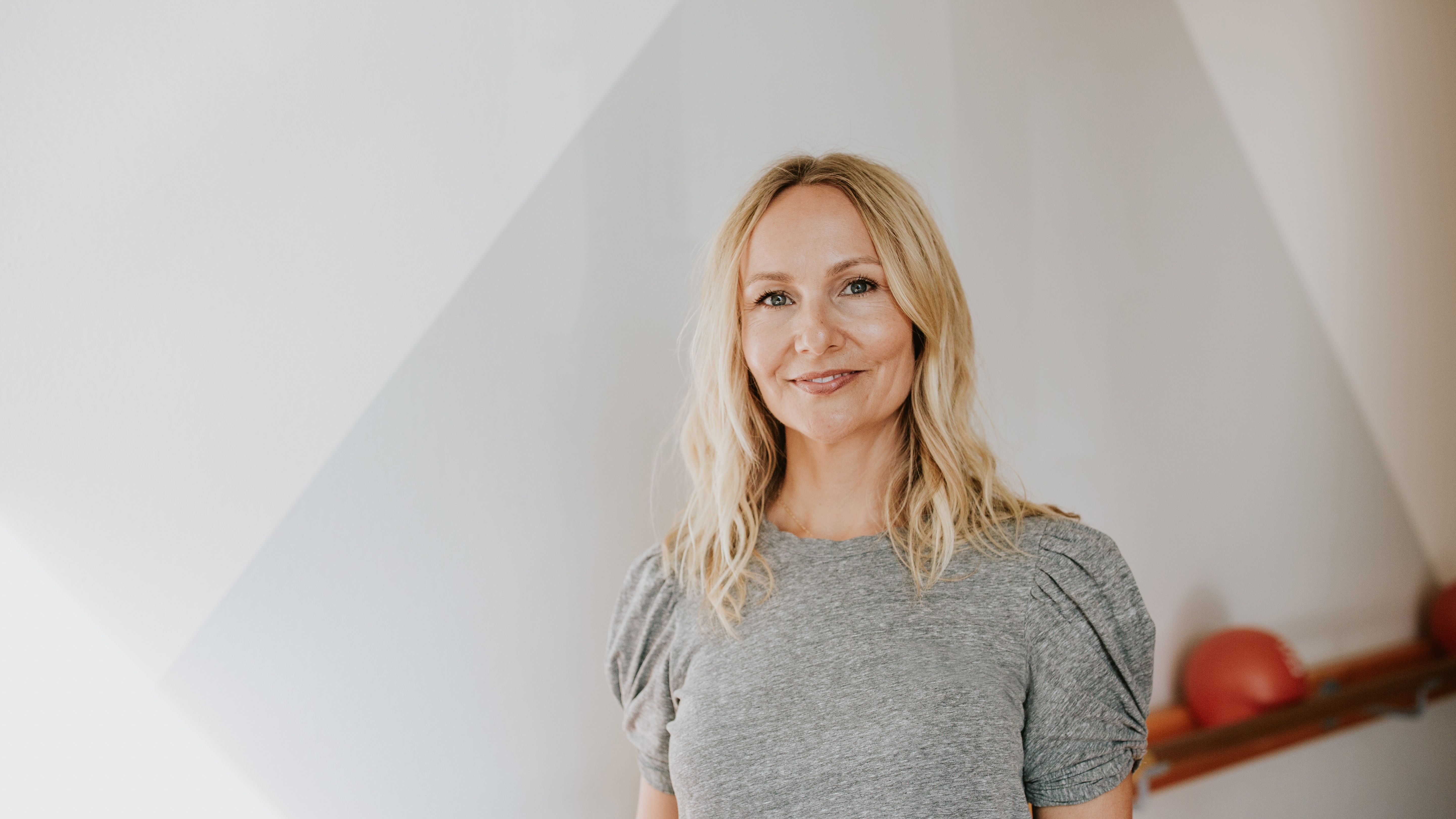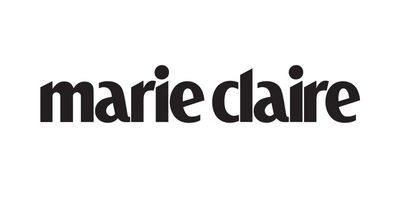"Being A Female CEO Is Not My Identity"
Sadie Lincoln thought that building her dream company, Barre3, would lead to happiness. Despite the success of her business, she soon realized the culture that surrounds female founders was in need of a major rethink.


I have been in the fitness industry since I was 19 years old. My first job after grad school was at 24 Hour Fitness, where I worked with founder and former CEO Mark Mastrov and helped grow the company from nearly 20 gyms to more than 400 over 11 years (with the guy who would become my husband, Chris Lincoln). When I was there, I started looking into the data behind fitness, and it was pretty clear: Most people did not have a healthy relationship with fitness. Our overall collective health is on the decline, and lifestyle-related diseases such as type 2 diabetes, not to mention emotional diseases like anxiety, depression, body-image issues, and eating disorders, are alarmingly high. We are not well, and yet the health-club industry has grown close to 35 percent over the past 10 years. I was in the middle of this booming $30 billion industry and identified with fitness as my career, but I was really unhappy with my own body, my energy levels, and my confidence.
Chris and I had good jobs, a house with a view, and two healthy kids, so everything seemed to be lining up. But despite those achievements, I was lonely and unhappy. I thought there was something wrong with me. Chris came to me one day with a spreadsheet that he had kept tucked in his pocket for weeks. It was an analysis of how we could sell our house, not work for a year, and raise our kids together. We ended up using the money we earned by selling our house to build our dream company, Barre3, to redefine what success in the fitness industry means. We wanted a company that fights inner loneliness instead of just being focused on fitness, that’s built around our true worth. Our worth is not our house or our marriage. Our worth is our core values.

Sadie Lincoln at one of her 140+ Barre3 studios.
We took the risk and started Barre3—and, lo and behold, when you do something based on your values, people like it. The very first class I taught was on top of a natural-foods store in Portland, Oregon, and was offered free to the community. We built a business plan around 20 studios. Then, on August 11, 2008, at 5:45 p.m., I held my first official Barre3 class in my studio in the Pearl District. I think 15 people showed up and paid. I knew it was going to be big in that moment. It was so different from any other fitness class I’d done—not in the movement or science (barre incorporates ballet-inspired movements) but in my approach. It wasn’t about getting anywhere; it was about developing wisdom and confidence in your body as it is. Since, we’ve grown to over 140 franchise studios, and we have an online workout subscriber base in nearly 100 countries.
So, I became a woman CEO and cofounder, which apparently this country is enamored with. I bought into the ideal of what that should be, and I really tried to play that part. A popular interview question for female founders is “What is your morning routine?” Once in a while, I’m a badass before 10 a.m., but that is not my truth every day. In fact, more often than not, I wake up and I’m like, Damn. I feel old. I drank too much wine last night. But I would answer with that “once in a while” example. I would say, “I get up at 5:30 in the morning, meditate, make my kids a healthy breakfast, and then put on my power suit” because I wanted to inspire other women.
I also started to hear chatter in my brain. Chris and I built Barre3 because we wanted to be balanced parents, but the irony was that I was spending a lot of time with my children, but I wasn’t really with them. I remember one morning I was making breakfast with the kids and Chris was asking me questions, but I wasn’t answering because I was absorbed in my own thoughts about work. I was totally missing that moment. That was huge for me.
I had so much shame. I thought that I was not measuring up as a mother or a CEO.
I had so much shame. I thought that I was not measuring up as a mother or a CEO because I was so distracted and caught up in the ideal. We had a culture shake-up in our company, and things were not going well, so I sent out an anonymous survey. People wrote back with stinging comments about me as a leader. That took me down to my knees because my whole identity was wrapped up in being beloved as a boss. The rest of the world was telling me I was super badass, but my reality was so far from that. I started having anxiety attacks and fallout with my company. I was so broken; I realized that I wasn’t living up to other people’s ideal of what a CEO was, and that shattered me because I was so tied up in that as my identity.
Instead of being angry, I decided to share that data with my entire company. I went in with a measurable, actionable plan. I needed perspective and distance and to let my ego go.
Get exclusive access to fashion and beauty trends, hot-off-the-press celebrity news, and more.
I met with my team monthly to check on how I was improving as a leader. What I didn’t realize I had done up to that point was I had created a culture of perfection, and as a result we lost authenticity, trust, and our ability to innovate together. Now I’ve created a culture where everybody’s allowed to fail and to fall from grace. To own it and then pull ourselves back up. That’s what life—and business—is about: getting to that point of failure where your body can rebuild again. I lost team members during this trying time. I think some of them found it disarming to see me owning my failures. But the people who stayed have full permission to fail, and now we are growing and learning together more than we have in our past 11 years.
It’s been such a good discovery to realize that being a female CEO is not my identity. That is not my worth. My worth is showing up every day in the in-between moments and being true to myself. I’ve learned that it’s an honor and a privilege being a woman who’s leading in my authentic way, and it has been a journey to get here. It is so important for women to be equally represented as CEOs and founders, but we put them on a pedestal where they can’t fail. I’ve fallen from my pedestal a lot, and that’s okay. I’m just being human.
This article originally appeared in the July 2019 issue of Marie Claire.
RELATED STORY

Megan DiTrolio is the editor of features and special projects at Marie Claire, where she oversees all career coverage and writes and edits stories on women’s issues, politics, cultural trends, and more. In addition to editing feature stories, she programs Marie Claire’s annual Power Trip conference and Marie Claire’s Getting Down To Business Instagram Live franchise.
